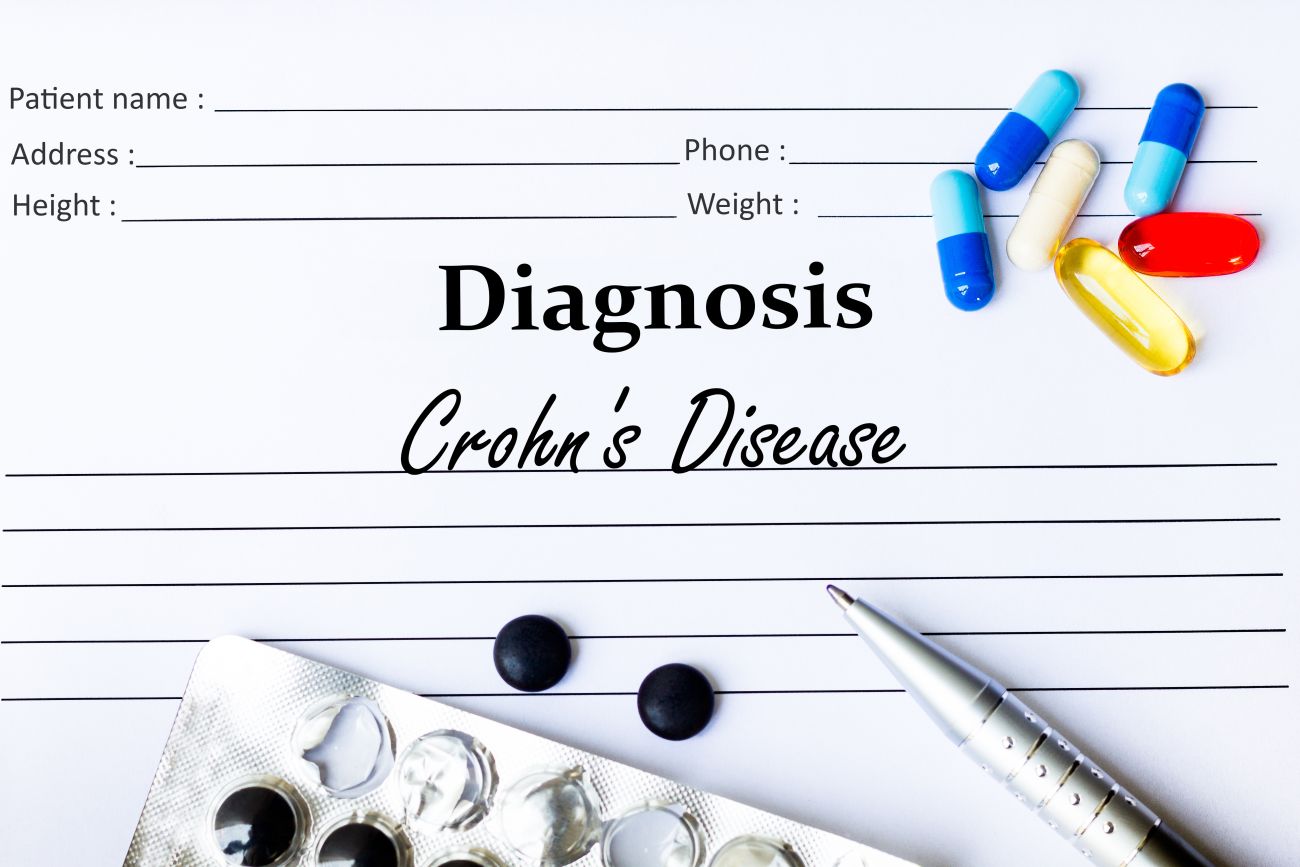Crohn’s disease is a chronic condition that causes persistent inflammation in the digestive system, potentially affecting any part from the mouth to the anus. If left undiagnosed or untreated, the inflammation can lead to severe symptoms such as abdominal pain, diarrhea, fatigue, and weight loss. Over time, it may cause significant and lasting damage to the digestive tract, increasing the risk of complications like strictures, fistulas, or malnutrition. Early diagnosis and treatment are essential.
Screening and Prevention
Currently, there are no professional guidelines that recommend screening for Crohn’s disease. This does not mean that there is no interest in developing screening tools for the disease, as the diagnosis of Crohn’s disease is often delayed.
With the recent development of the Red Flags index — a clinical tool that has great potential for predicting the presence of Crohn’s disease based on early signs and symptoms — this may change. Furthermore, Crohn’s disease cannot be prevented.
Diagnosis
As Crohn’s disease shares similar signs and symptoms with other digestive system diseases, your doctor will need to eliminate other possible causes for your symptoms. There isn’t a single test or examination to diagnose Crohn’s disease. Your doctor will begin the process by taking a thorough medical history and performing a thoughtful physical examination.
As part of the medical history, your doctor may ask you about your current medications and about the presence of the following:
- Abdominal pain and/or cramping
- Family history of IBD
- Recurrent fevers
- Recent weight loss and/or fatigue
- Diarrhea and/or bloody stools
As part of the physical examination, your doctor will take your vital signs, such as weight, temperature, blood pressure, and pulse. Other pertinent parts of the physical examination should include attentive abdominal and rectal exams.
Your doctor may order lab tests such as a complete blood count to check for anemia and the possible presence of an infection. Other blood tests may include a check of electrolytes, kidney and liver function, C-reactive protein or erythrocyte sedimentation rate, and iron and vitamin B12 levels. Additionally, a stool sample may be collected to check for the presence of microscopic blood or white blood cells as well as culture to rule out bacterial or parasitic infections.
Treatments
Currently, there is no cure for Crohn’s disease. As a result, the goal of treatment is the reduction of associated inflammation. This can lead to relief of symptoms, long-term remission, and limitation of complications — all of which can improve the long-term prognosis of the disease.
There are several classes of drugs that can be used in the management of Crohn’s disease, such as:
- Anti-Inflammatory Drugs: Steroids are mainstays in the treatment of Crohn’s disease. They should be used in short courses of three to four months due to their potential for serious side effects, which include weight gain, cataracts, diabetes, high blood pressure, and osteoporosis.
- Immunosuppressant Drugs: Another class of drugs used to manage Crohn’s disease is immunosuppressant drugs. They fight inflammation by targeting the immune system, whose cells produce pro-inflammatory substances. This class of drugs is often used in combination with 5-ASA drugs. The most common side effects of immunosuppressant drugs are increased susceptibility to infection, diarrhea, nausea, and vomiting.
- Biologics: Biologics are a relatively new class of drugs used to treat Crohn’s disease. They are typically reserved for Crohn’s patients non-responsive to steroids, 5-ASA drugs, and immunosuppressants. The most commonly used drugs in this class work by blocking tumor necrosis factor (TNF), an inflammation-promoting protein. Alternatives to anti-TNF drugs are drugs that target integrin, another inflammation-promoting protein.
- Antibiotics: Antibiotics are another class of drug used to treat Crohn’s disease, specifically the infectious complications of the disease, such as fistulas, abscesses, and perianal disease.
- Surgery: Surgery is sometimes the last resort or needed emergently for the complications associated with Crohn’s disease. It is estimated that the majority of patients with Crohn’s disease will need one or more surgeries during their lifetime.
The following surgeries may be used to treat Crohn’s disease:
- Colectomy to remove damaged portion/s of the colon
- Proctocolectomy to remove the colon and rectum, which usually requires the creation of an ostomy
- Strictureplasty to repair strictures resulting from chronic inflammation
Moving Forward With Confidence in Crohn’s Care
Living with Crohn’s disease can feel overwhelming, but understanding your diagnosis and the available treatments can make a remarkable difference in long-term health and quality of life. While there is no cure, effective therapies—from anti-inflammatory medications to biologics and surgical options—can help reduce inflammation, manage symptoms, and prevent complications.
Early evaluation, ongoing communication with healthcare providers, and staying informed about emerging treatment strategies empower individuals to take an active role in their care. With the right support and timely intervention, many people with Crohn’s disease lead full, productive lives.
